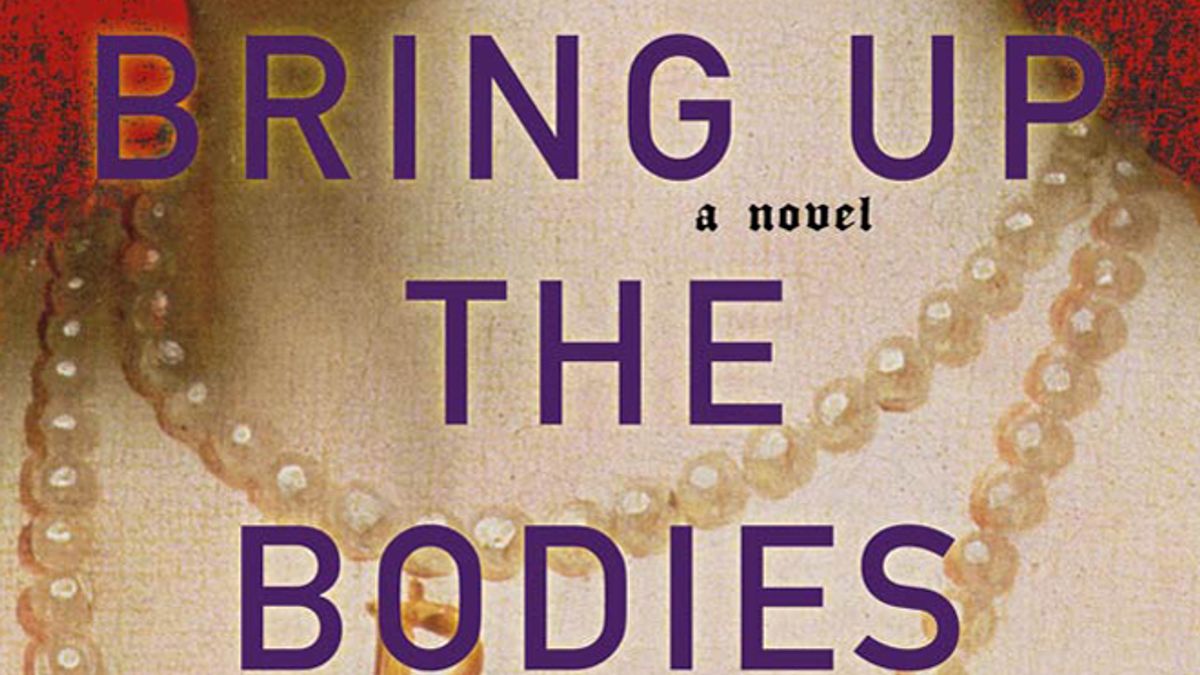Table of Contents
ToggleIntroduction
Novel Bring Up The Bodies Summary By Hilary Mantel After Wolf Hall, Hilary Mantel’s acclaimed Thomas Cromwell trilogy continues with Bring Up the Bodies. Mantel expertly continues her investigation of 16th-century England in this historical novel, concentrating on the political and interpersonal intrigues that defined King Henry VIII’s court. The book transports readers to the tumultuous realm of Tudor politics, complete with power battles and shifting loyalties that ultimately result in tragic and fatal outcomes.
A fascinating historical drama, Bring Up the Bodies explores the complexities of survival, devotion, and ambition. The narrative, which begins in 1535, soon after the events of Wolf Hall, chronicles the ascent and final decline of Henry VIII’s second wife, Anne Boleyn.
The book explores the mind of Thomas Cromwell, the king’s main minister and a cunning and smart politician. Much of the novel’s intrigue centers on Cromwell’s ability to negotiate the perilous waters of the Tudor court, where betrayal is rampant and allegiance shift swiftly.
Plot Summary of Bring Up the Bodies by Hilary Mantel
Novel Bring Up The Bodies Summary By Hilary Mantel In 1535, as Bring Up the Bodies starts, Thomas Cromwell is firmly established as King Henry VIII’s senior minister. Tensions between Anne Boleyn, Henry’s second wife, and the monarch had escalated after she failed to bear a male heir. Cromwell finds himself entangled in a web of intrigue and treachery as he attempts to handle the sensitive circumstances surrounding Anne’s increasingly hazardous condition.
Anne Boleyn’s Downfall
Once the aspirational queen who won Henry over and was instrumental in the English Reformation, Anne Boleyn is currently suffering as a result of her inability to have a male heir. As Henry grows more and more irate over her failure to bear a son, Anne’s situation becomes intolerable. Her adversaries in the church and at court start scheming to bring her down, and Cromwell plays a key role in bringing her down.
Cromwell is presented as a practical and cunning individual who skillfully and precisely negotiates the perilous and perilous court politics. Cromwell is charged with obtaining proof to support Anne’s imprisonment and execution as her adversaries move in. She faces serious charges of treason, incest, and adultery. With his keen political sense, Cromwell directs a number of schemes to make Anne’s guilt seem indisputable.
Novel Bring Up The Bodies Summary By Hilary Mantel Despite the moral complexities of his actions, Cromwell remains focused on his survival and loyalty to the king. His ability to detach himself emotionally from the personal ramifications of his work is one of the defining aspects of his character in the novel. He is a man who has risen to power through sheer will, intelligence, and an ability to understand the intricacies of human nature. As the situation becomes more dire for Anne, Cromwell’s actions become increasingly calculated, demonstrating his ruthless efficiency in executing the will of the king.
Read more
The Arrest and Execution of Anne Boleyn
The culmination of Cromwell’s machinations is the arrest of Anne Boleyn and the subsequent trial. The evidence against her is largely fabricated, a reflection of the deep political manipulations at play in Henry’s court. Anne’s downfall is a tragic event, but it is also one that is necessary for Cromwell to maintain his own power and for Henry to achieve his desired political goals. Anne’s execution, which occurs in May 1536, marks a pivotal moment in the novel, symbolizing the lengths to which Cromwell is willing to go to maintain his position.
Novel Bring Up The Bodies Summary By Hilary Mantel The narrative is filled with complex emotional undercurrents as Cromwell witnesses Anne’s arrest and her eventual execution. He is a man who understands that in the cutthroat world of the Tudor court, no one is ever truly safe. Even the most powerful individuals are vulnerable to the whims of the king, and Cromwell’s survival depends on his ability to stay one step ahead of everyone around him.
Throughout the novel, Mantel juxtaposes Cromwell’s pragmatic political decisions with the personal consequences of those decisions. While he remains a deeply unsentimental figure, he is also shown to be capable of moments of reflection and emotion. His loyalty to the king is unwavering, but the psychological toll of his actions begins to surface as the story progresses.
Cromwell’s Relationship with Henry VIII
Novel Bring Up The Bodies Summary By Hilary Mantel The relationship between Thomas Cromwell and Henry VIII is central to the narrative of Bring Up the Bodies. Henry, a volatile and unpredictable king, is both a source of power and a constant threat to those who serve him. Cromwell is acutely aware of Henry’s moods and desires, and much of the tension in the novel comes from the precariousness of their relationship. As Anne’s fall from grace plays out, Cromwell is forced to confront his loyalty to a king whose desires seem to shift constantly.
Despite the trust Henry places in Cromwell, there is always an underlying tension in their relationship. Henry’s need for control and his inability to trust those around him make him a dangerous ally. Cromwell must constantly navigate the king’s unpredictable moods, balancing his desire to maintain power with the necessity of appeasing Henry’s whims. This dynamic is one of the most compelling aspects of the novel, as it highlights the precariousness of political power and the cost of serving a capricious monarch.
Novel Bring Up The Bodies Summary By Hilary Mantel As Anne’s execution takes place and the dust settles, Cromwell remains by Henry’s side, knowing that his survival is contingent upon continuing to serve the king’s desires. However, the consequences of his role in Anne’s downfall linger, and Cromwell’s internal struggles become more pronounced as he contemplates the personal cost of his political success.

Key Themes in Bring Up the Bodies by Hilary Mantel
1 Power and Ambition: One of the central themes in Bring Up the Bodies is the corrupting influence of power and the lengths to which individuals will go to secure and maintain it. Cromwell’s rise to power is built on his ability to navigate the dangerous currents of Tudor politics, but his ambition also comes at a great personal cost. The novel examines the complex relationship between power and ambition, showing how both drive the characters to make morally questionable decisions.
2 Loyalty and Betrayal: Loyalty and betrayal are key themes in Bring Up the Bodies, particularly in the context of Cromwell’s relationship with Henry VIII and his role in Anne Boleyn’s downfall. The novel explores how loyalty can be both a source of strength and a source of danger, as characters navigate shifting allegiances and competing interests. Cromwell’s loyalty to the king is tested time and again, and his decisions often involve betraying others in order to protect his own position.
3 Justice and Morality: Novel Bring Up The Bodies Summary By Hilary Mantel The novel also grapples with questions of justice and morality, particularly in the context of Anne Boleyn’s trial and execution. Cromwell’s involvement in orchestrating her downfall raises difficult ethical questions about the nature of justice in a society defined by political maneuvering and personal ambition. The narrative highlights the tension between legal processes and political power, suggesting that in the world of the Tudors, justice is often shaped by those in power rather than by any objective moral standard.
Read more
4 Survival and Sacrifice: Cromwell’s journey in Bring Up the Bodies is driven by a relentless desire for survival. Throughout the novel, he must make difficult choices that involve personal sacrifice in order to secure his own position and protect his family. The theme of survival is explored through Cromwell’s political acumen and his ability to adapt to changing circumstances, but it is also reflected in his emotional sacrifices. The novel suggests that survival in such a brutal world often requires individuals to suppress their own feelings and moral convictions.
5 The Nature of History: Bring Up the Bodies also raises questions about the nature of history itself. The novel is written from the perspective of Thomas Cromwell, a man who was a key architect of historical events, yet remains largely invisible in traditional historical accounts. By focusing on Cromwell’s personal experiences and emotions, Mantel offers a nuanced and humanizing portrait of a man who played a pivotal role in shaping the course of English history.

Conclusion
Novel Bring Up The Bodies Summary By Hilary Mantel Bring Up the Bodies is a deep, gripping book that explores the intricacies of loyalty, ambition, and power while transporting readers to Tudor England. Hilary Mantel vividly depicts Thomas Cromwell as a man who is both a highly skilled tactician and a profoundly conflicted person through his eyes.
The book explores the moral complexities of politics and history while providing a sophisticated analysis of the political and human factors that influenced Henry VIII’s world. Bring Up the Bodies is an outstanding piece of historical fiction that will make readers consider the nature of loyalty, power, and the cost of existence through its compelling story and nuanced characters.
Read more
FAQs
1 What is Bring Up the Bodies about?
Bring Up the Bodies is a historical novel that follows the rise and fall of Anne Boleyn, the second wife of Henry VIII, through the eyes of Thomas Cromwell, the king’s chief minister. The novel explores themes of power, loyalty, betrayal, and survival as Cromwell navigates the dangerous and volatile world of Tudor politics.
2 Who is Thomas Cromwell?
Thomas Cromwell was a key figure in the court of Henry VIII. Initially a lawyer, Cromwell rose to power as the king’s chief minister and played a major role in the English Reformation. In Bring Up the Bodies, Cromwell is portrayed as a brilliant, calculating, and pragmatic political figure who is willing to do whatever is necessary to maintain his power and serve the king.
3 Why is Anne Boleyn’s downfall so significant?
Anne Boleyn’s downfall is significant because it marks the tragic end of a woman who once held great influence and power in England. Her inability to produce a male heir for Henry VIII led to her demise, and her execution is a key moment in the novel. It also highlights the precariousness of power in the Tudor court and the lengths to which individuals like Cromwell will go to protect their own survival.
4 What role does loyalty play in the novel?
Loyalty is a central theme in Bring Up the Bodies, particularly in the context of Cromwell’s relationship with Henry VIII. Cromwell’s loyalty to the king is unwavering, but his actions often require him to betray others in order to maintain his position. The novel explores the tension between personal loyalty and political pragmatism.
5 How does Hilary Mantel depict Henry VIII in Bring Up the Bodies?
In Bring Up the Bodies, Henry VIII is depicted as a volatile and unpredictable monarch whose desires and moods constantly shift. Mantel’s portrayal of Henry is one of a man driven by personal whims and insecurities, whose decisions often have far-reaching consequences for those around him, including Cromwell and Anne Boleyn.
Read more
















